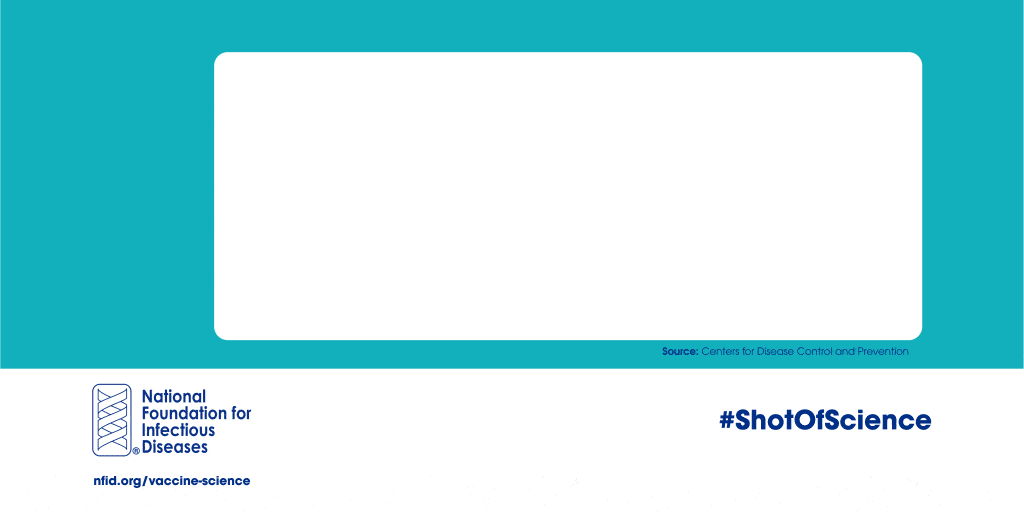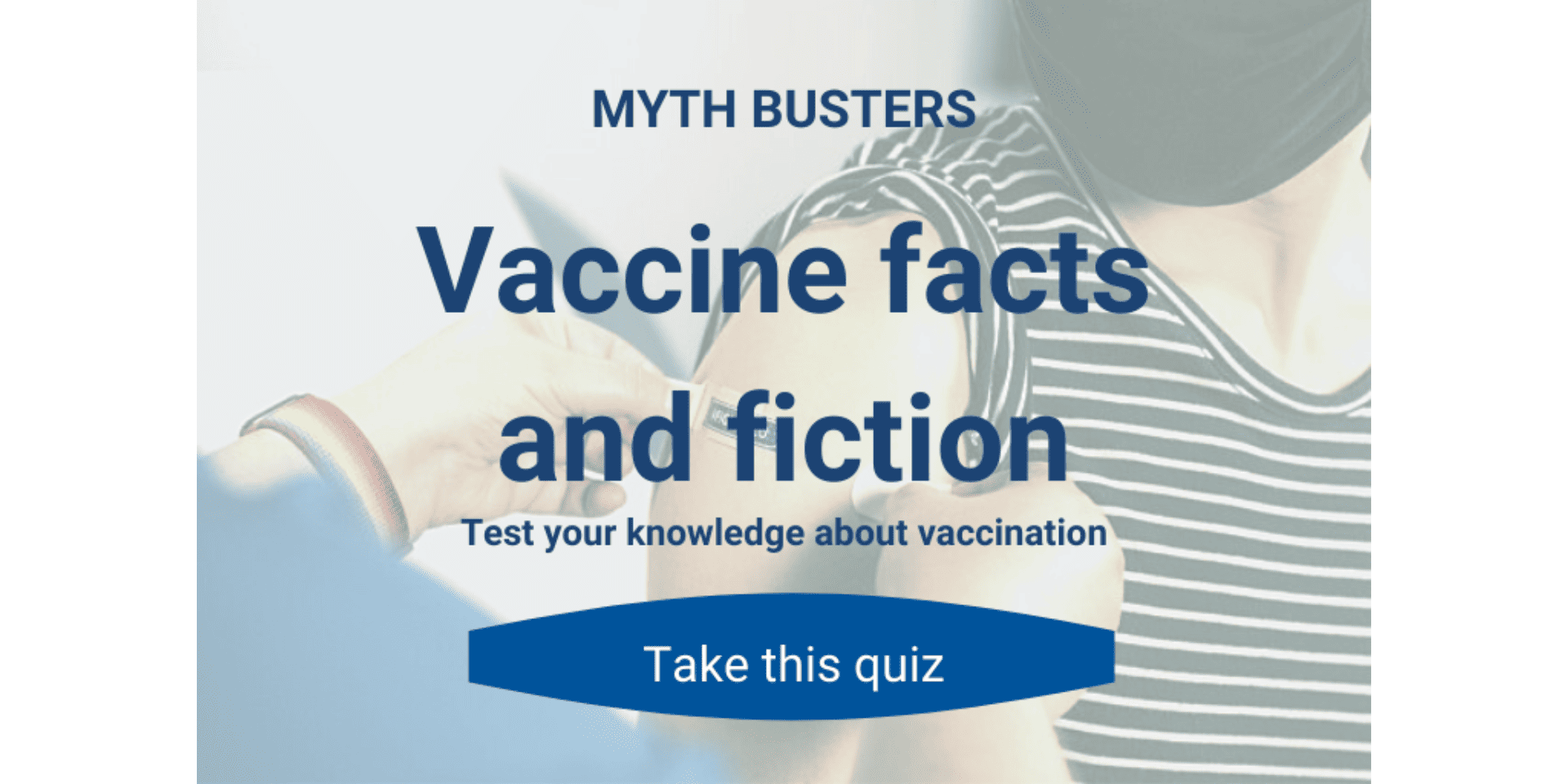
For 2021 National Immunization Awareness Month (NIAM), the National Foundation for Infectious Diseases (NFID) created a quiz to test reader knowledge of vaccine facts and fiction. How did our readers do? Read to find out …
True or False: Vaccines are just for children
92% said FALSE. 8% said TRUE. Correct answer? FALSE
Vaccines are important to protect children as well as teens and adults. Some diseases such as shingles only affect adults. Adults may be at risk for other vaccine-preventable diseases due to age, job, lifestyle, travel, or health conditions.
True or False: A child dies every 20 seconds from a disease that could have been prevented by a vaccine
69% said TRUE. 31% said FALSE. Correct answer? TRUE
Worldwide, vaccines prevent an estimated 2.5 million deaths among children younger than age 5 each year. Routine vaccinations in children are recommended to prevent diseases such as chickenpox, influenza (flu), measles, polio, and others.
True or False: Vaccines should not be given to pregnant women
64% said FALSE. 36% said TRUE. Correct answer? FALSE
Pregnant women should get vaccinated against flu and whooping cough (pertussis) during each pregnancy to protect both the mother and baby. Pregnant women are also at an increased risk for severe illness from COVID-19. Some women may need other vaccines before, during, or after they become pregnant.
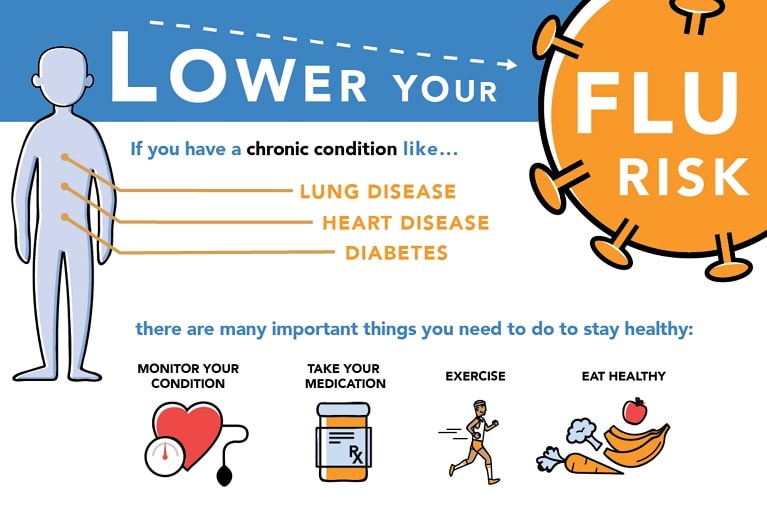 True or False: Older adults and those with chronic health conditions have a higher risk of complications from many vaccine-preventable diseases
True or False: Older adults and those with chronic health conditions have a higher risk of complications from many vaccine-preventable diseases
78% said TRUE. 22% said FALSE. Correct answer? TRUE
Many vaccines are recommended for adults age 65 years and older as well as younger adults with diabetes, heart disease, lung disease, or other chronic conditions that put them at greater risk. Adults who have heart disease are at 6 times greater risk of heart attack within 7 days of flu infection.
True or False: Billions of vaccine doses have been safely administered in the US for more than 50 years
81% said TRUE. 19% said FALSE. Correct answer? TRUE
The flu vaccine was first licensed in the US more than 70 years ago. To date, more than 365 million doses of COVID-19 vaccines have been administered in the US, and the number grows each day. In the US, vaccinations have been safely administered for decades, and adverse events are rare.
True or False: Vaccines are tested for safety before and after they become available to the public
90% said TRUE. 10% said FALSE. Correct answer? TRUE
In the US, all approved vaccines are required to go through extensive safety testing before they are available for use. Before a vaccine is approved by the Food and Drug Administration (FDA), 5 phases of research and development are completed along with 3 phases of clinical trials involving thousands of volunteers. After a vaccine is approved, 4 separate surveillance systems are used to monitor vaccine efficacy and safety in the US.
True or False: Annual flu vaccination is the best way to prevent flu and related complications
86% said TRUE. 14% said FALSE. Correct answer? TRUE
The best way to prevent flu and serious complications is to get vaccinated annually. Immunity declines over time and since the vaccine may change to match circulating flu viruses, it is important to get vaccinated every year. The Centers for Disease Control and Prevention (CDC) recommends annual flu vaccination for everyone age 6 months and older. Flu vaccines can vary in how well they work against circulating flu viruses, but even in cases where the vaccine does not prevent infection completely, it can reduce the severity of illness and reduce the risk of hospitalization and death.
True or False: If you haven’t received a flu vaccine by October, there is no point in getting vaccinated
85% said FALSE. 15% said TRUE. Correct answer? FALSE
In the US, the fall is the best time to get vaccinated, before flu viruses begin spreading in your community. However, vaccination throughout the flu season is still beneficial in preventing serious illness and death.
Learn More
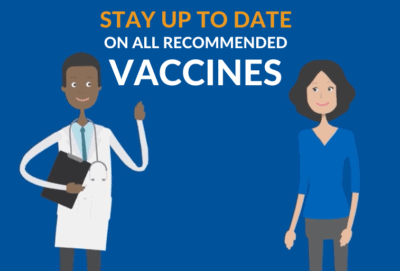 During NIAM, NFID and its 130+ Keep Up The Rates campaign partners encourage you to talk to a healthcare professional to ensure that you and your family are up to date on all recommended vaccines.
During NIAM, NFID and its 130+ Keep Up The Rates campaign partners encourage you to talk to a healthcare professional to ensure that you and your family are up to date on all recommended vaccines.
Read 10 reasons to get vaccinated, and find out which vaccines may be recommended for you.
To join the conversation and get the latest news on infectious diseases, follow NFID on Twitter using the hashtags #KeepUpTheRates, #GetVaccinated, and #IVax2Protect, like us on Facebook, follow us on Instagram, visit us on LinkedIn, and subscribe to receive future NFID Updates.
Related Posts
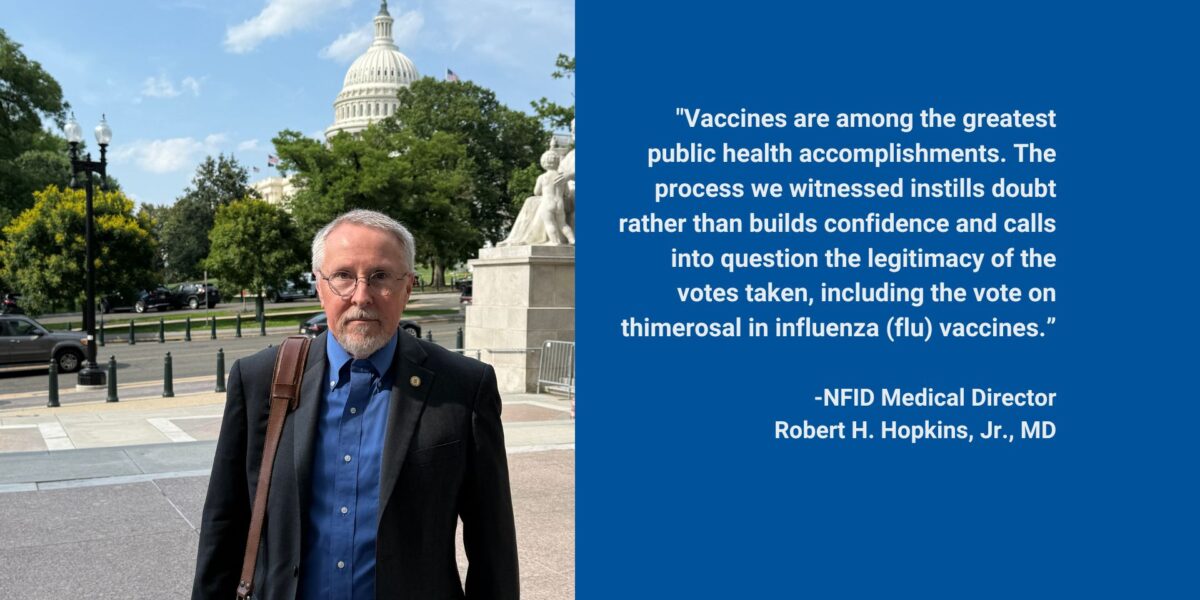
Flawed ACIP Process Leads to Confusion and Distrust
Public health experts and leading healthcare professionals share concerns regarding the June 2025 Advisory Committee on Immunization Practices (ACIP) meeting on US immunization policy …

Empowering Men to Prioritize Health
Staying up to date on all recommended vaccines and taking other steps to prevent illness helps ensure men are ready for what matters most—showing up for loved ones or simply enjoying life …

Experts Sound Alarm after ACIP Members Removed
Public health experts and leading healthcare professionals share concerns on the removal of all 17 members of the Advisory Committee on Immunization Practices (ACIP), which advises the Centers for Disease Control and Prevention (CDC) on the use of vaccines in the US

